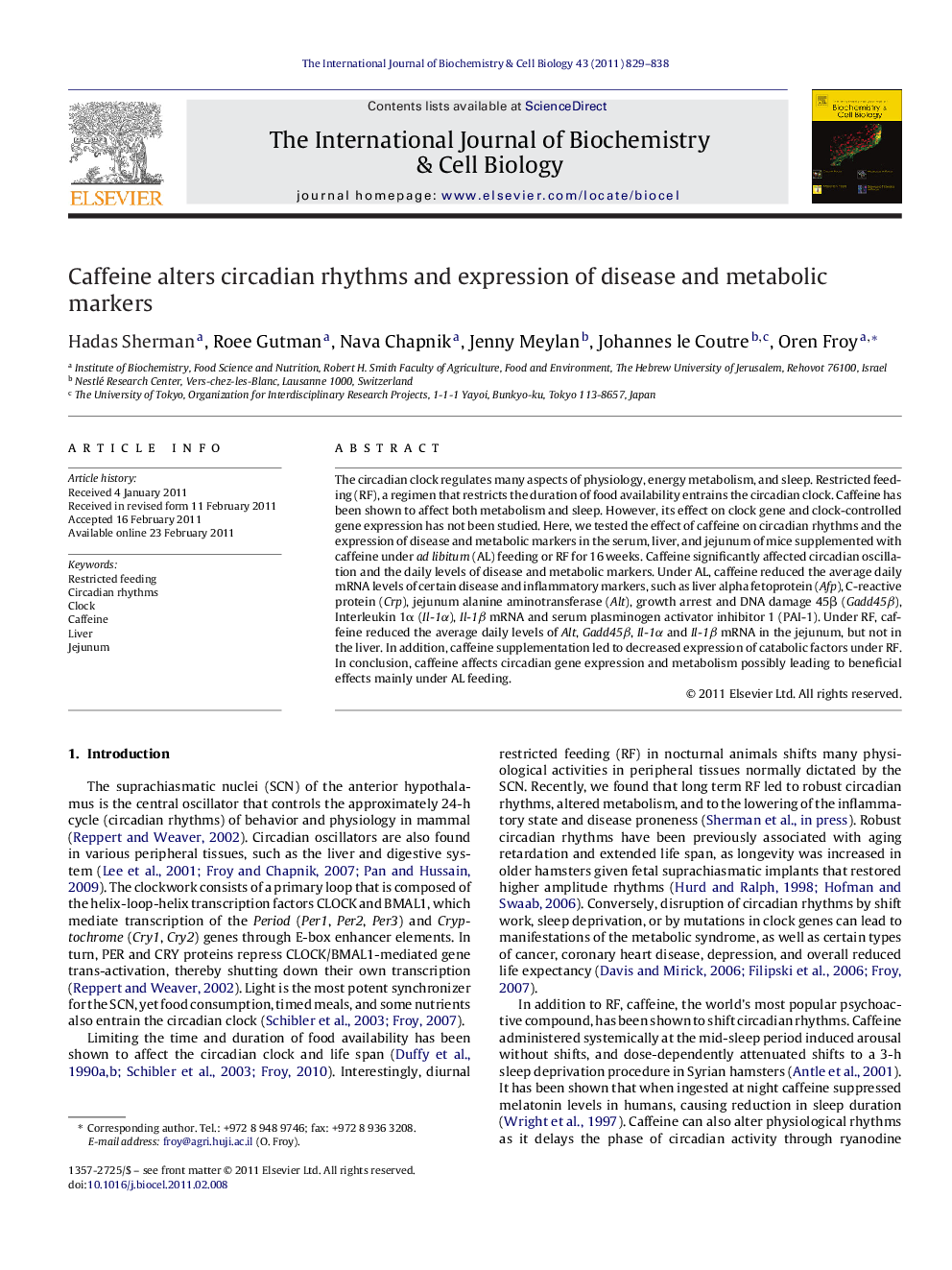| Article ID | Journal | Published Year | Pages | File Type |
|---|---|---|---|---|
| 8325168 | The International Journal of Biochemistry & Cell Biology | 2011 | 10 Pages |
Abstract
The circadian clock regulates many aspects of physiology, energy metabolism, and sleep. Restricted feeding (RF), a regimen that restricts the duration of food availability entrains the circadian clock. Caffeine has been shown to affect both metabolism and sleep. However, its effect on clock gene and clock-controlled gene expression has not been studied. Here, we tested the effect of caffeine on circadian rhythms and the expression of disease and metabolic markers in the serum, liver, and jejunum of mice supplemented with caffeine under ad libitum (AL) feeding or RF for 16 weeks. Caffeine significantly affected circadian oscillation and the daily levels of disease and metabolic markers. Under AL, caffeine reduced the average daily mRNA levels of certain disease and inflammatory markers, such as liver alpha fetoprotein (Afp), C-reactive protein (Crp), jejunum alanine aminotransferase (Alt), growth arrest and DNA damage 45β (Gadd45β), Interleukin 1α (Il-1α), Il-1β mRNA and serum plasminogen activator inhibitor 1 (PAI-1). Under RF, caffeine reduced the average daily levels of Alt, Gadd45β, Il-1α and Il-1β mRNA in the jejunum, but not in the liver. In addition, caffeine supplementation led to decreased expression of catabolic factors under RF. In conclusion, caffeine affects circadian gene expression and metabolism possibly leading to beneficial effects mainly under AL feeding.
Related Topics
Life Sciences
Biochemistry, Genetics and Molecular Biology
Biochemistry
Authors
Hadas Sherman, Roee Gutman, Nava Chapnik, Jenny Meylan, Johannes le Coutre, Oren Froy,
